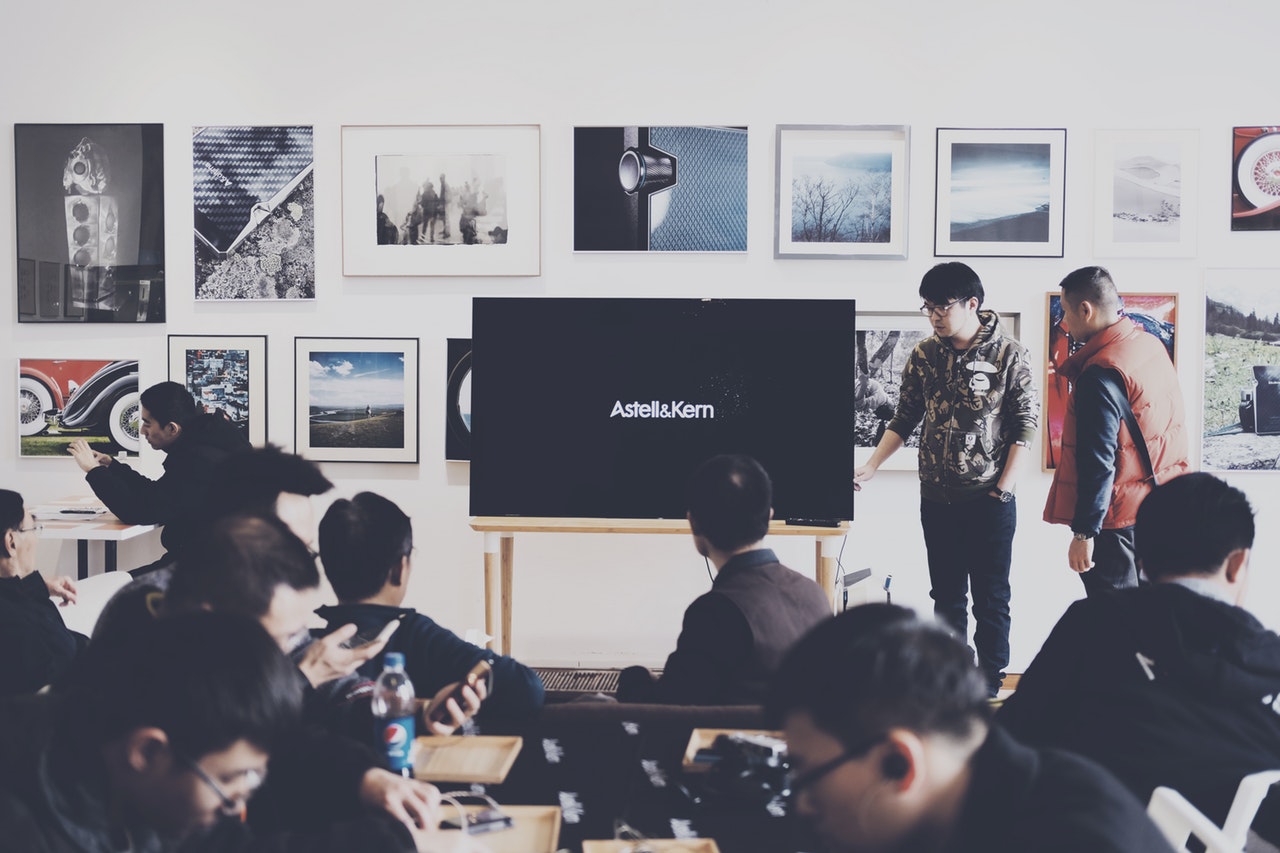In recent years, the pressure has increased for conference organisers, due to the pressure of making their event memorable and impactful for all attendees. With the ever-progressing digital age, technology is lending itself to a plethora of purposes, and at large events this can make a huge difference. Engagement rates and efficiency can be boosted with a bit of innovation. With some help from Wyboston Lakes, let’s take a look at how innovative technology is changing the conventional conference.
Get connected
The core of all major business events and executing the perfect conference requires a lot of prior knowledge and planning. Technology has undoubtedly streamlined these processes, taking over from the older, paper-based systems. Tools such as platform-as-service event technology — a system of cloud computing devices which creates a space for users to work in real-time together, have proven invaluable for organisers, and beacon technology are already leading towards a shift in connectivity at industry events. The beacon, a small device, connects with a mobile app and delivers content based on the geographical location of the connected user. Apple unveiled their iBeacon in 2013, designed to provide interactivity between connected devices, such as by welcoming attendees or facilitating live audience polls. Everything from lunchtime menus to table plans can be shared this way, creating instantaneous communication with the audience. Beacons are used for a whole host of reasons, why not follow suit from a Romanian festival which used beacons and connected devices to stage a mass treasure hunt. In conference context, beacons can help to deliver content efficiently, improve audience networking and reduce waiting times in venues; allowing organisers to get creative with their exciting, adaptable features.
Apps
In recent years, developers are being met with an increasing demand for the creation of digital apps, ahead of industry events. Apps of this nature are used on a regular basis, and they are a great way of communicating with attendees ahead of and during the event. They provide a portal for event hosts to distribute useful information, adding to the modern conference experience. Conference agendas, check-ins, hotel recommendations for commuters and often messaging options. Some event planners are using these apps as a loyalty scheme, wherein attendance at an event is recorded and rewards may be given after a certain amount of conferences. This technology has also served to change the conventional conference, building them into unique communities based on their point of interest.
A long-lasting impact
Usually, industry events mean trying to take in a large quantity of information, with only a few breaks to process the breadth of topics covered. Now, many conference events utilise audiovisual technologies, providing live streams through social media platforms, which can also be used to create time-lapses and keynote recording. This content can be distributed to attendees of the event afterwards, to maximise the longevity of the ideas covered in the event with the recipient. In a similar way, virtual and augmented reality can offer venue tours, facilitate virtual attendants and deliver remote speeches. This kind of technology provides an immersive experience in the conference setting, and it also adds clarity to engagement rates throughout the audience. The immediacy of audiovisual aspects contributes to the real-time elements of sharing ideas and concepts, even from beyond the conference itself.
Unique spaces
Recently, many conference venues have been looking to adapt their existing spaces, transforming them into something which breaks from convention and provides a refined experience for delegates to engage with. The recently refurbished Woodland Centre, a leading conference centres in Milton Keynes, utilises an array of new technologies, including advanced optical front projectors, digital flipcharts and wireless HDMI facilities. The venue has channeled a £3 million investment into providing an immersive, digitised experience for conference attendees, and Craig Warner, IT Director at Wyboston said ‘IT is now a key consideration for conference and event planners when selecting a venue’, ‘we have taken it one step further to ensure that our digital ecosystem is future proofed’. From adjustable lighting to panoramic display screens, the resort is finding innovative ways to support events in all sectors. The Woodlands Event Centre offers smart, convenient additions, such as built in applications and 1.3gb of high-speed internet, ensuring that conferences run seamlessly.
In conclusion, these new technologies are shaping the future of business conferences and events, adding a new dimension of engagement for attendees and enhancing the quality of learning.


